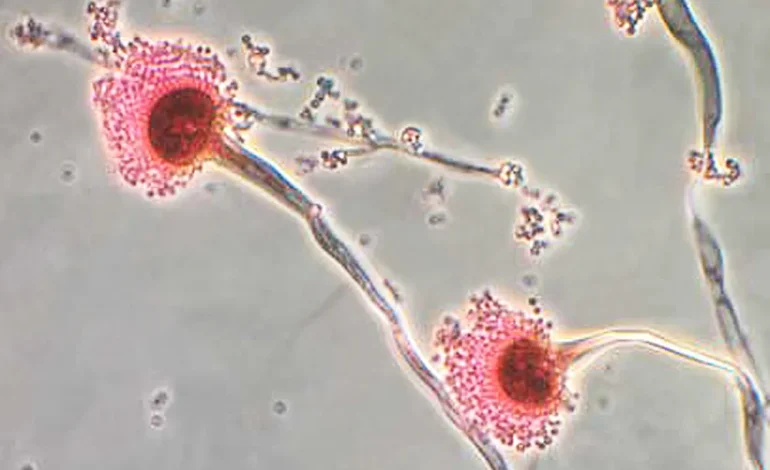Fungal infections, particularly those caused by Aspergillus fumigatus, are becoming increasingly difficult to treat as resistance to frontline medications rises, according to new research published in The Lancet Microbem, NBC News reports.
The findings underscore growing global concern over drug-resistant fungi and the limited tools available to combat them.
Aspergillus fumigatus is a common fungus found in soil and decaying organic matter. While most people inhale its spores regularly without consequence, the fungus can pose serious health risks to individuals with weakened immune systems or pre-existing lung conditions. The World Health Organization lists it among the most critical fungal threats, with mortality rates for resistant infections ranging from 47% to 88%.
The study, led by researchers at Radboud University Medical Centre in the Netherlands, analyzed more than 12,600 clinical samples collected over three decades. Roughly 2,000 of those samples showed genetic mutations linked to resistance against azoles, a key class of antifungal drugs. Notably, nearly one in five resistant strains had novel mutations, indicating evolving and increasingly complex resistance patterns.
Complicating treatment further, many patients were found to be infected with multiple strains of Aspergillus fumigatus—some with differing resistance profiles. This makes it harder for physicians to tailor effective treatment regimens.
“This presents treatment issues,” said study co-author Jochem Buil, who noted that some cases may require multiple antifungal drugs with harsher side effects and lower efficacy.
Only three major classes of antifungal drugs are currently available, and developing new ones is particularly challenging. Because fungi share a significant portion of their genetic makeup with humans, it’s harder to find drug targets that don’t also harm human cells.
Adding another layer to the issue, much of the resistance observed in A. fumigatus has been linked to fungicide use in agriculture. Fungicides used on crops like wheat and barley often target the same molecular pathways as medical azoles, giving fungi environmental exposure that promotes resistance even before a human infection occurs.
“This is a worldwide issue,” said Jarrod Fortwendel, a professor of clinical pharmacy at the University of Tennessee, who was not involved in the study. “Wherever we look, we’re finding resistant strains — and those numbers are likely to grow.”
Despite the alarming trend, experts stress that the average person’s risk of contracting a resistant fungal infection remains low. Most severe infections occur in patients who are already immunocompromised, and total annual US cases remain in the thousands. However, scientists caution that the underlying trend is troubling.
“This isn’t like COVID-19,” said Dr. Arturo Casadevall of Johns Hopkins University. “There’s no pandemic scenario with fungal infections. But this is a slow-moving crisis — one that is definitely worse than it was five, ten, or twenty years ago.”










The latest news in your social feeds
Subscribe to our social media platforms to stay tuned